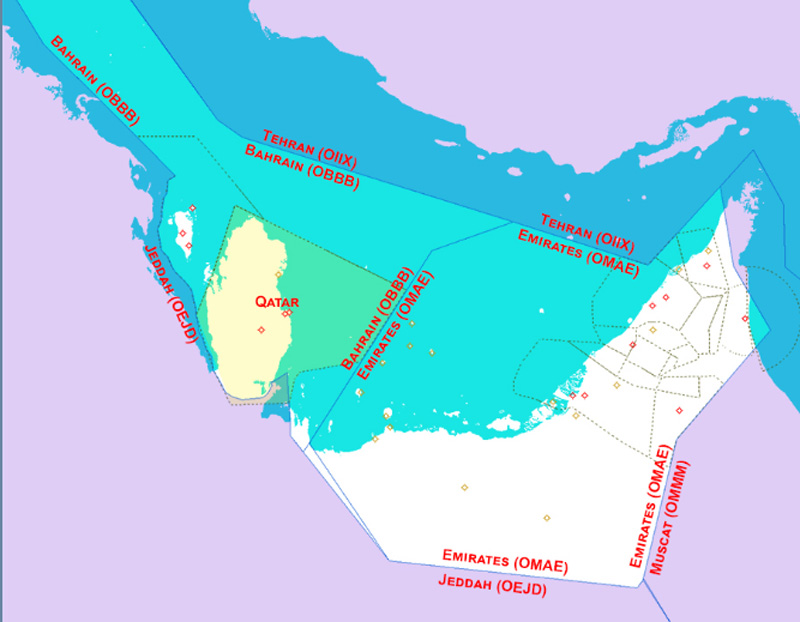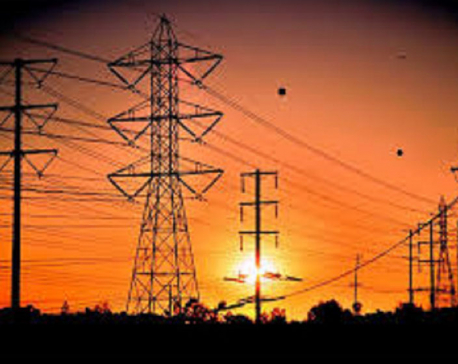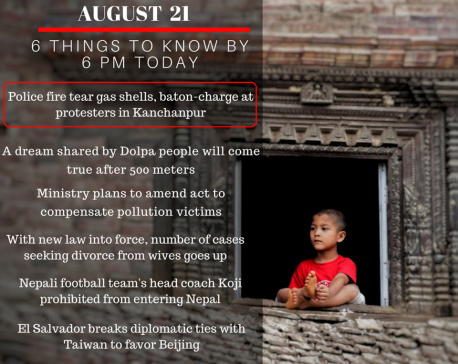
OR

Nepal Airlines was finally forced to clear a small due to Iran that had been outstanding since 1997
At least the world and the Qataris, in particular, knew in advance about the nakabandi that was going to be imposed upon them, unlike us hapless Nepalis. In our case, the single “imposer” was in constant denial even if its hand was nakedly apparent. Basically, Qatar’s total nakabandi by its neighbours boils down to the inherent tussle between the Shiite and Sunni sects. The Shiite Iran (which is close to Qatar) had a sort of pariah-like status until recently due to its overtly hard-line policies. At the other end, the Sunni faction lead by Saudi Arabia, has been acting like a “regional bully” over other Gulf Co-operation Council (GCC) members, as it is both big and powerful.
Possibly emboldened by Donald Trump, Saudi Arabia (KSA) severed diplomatic relations with Qatar—the small country within the GCC—with Egypt, Bahrain, the UAE, and even the far away and tiny Maldives of SAARC following suit in severing their own ties. Rightly or wrongly they have accused Qatar of supporting terrorism in all forms possible. Trouble in the region had been brewing for decades but for us the friction between the two sects is confusing. Yet this case has become interesting as the small Qatar is proving to be a hard nut to crack. I dare say this too sounds familiar!
Qatar has open seas on three sides, with its only land border with the KSA to the south.
But the blockade is not expected to be much damaging, even if Qatar is heavily reliant on food imports from the KSA. Maritime shipping is far cheaper, given the bulk transport, and both Iran and Turkey have vowed to immediately supply Qatar will all that it needs. With other GCC members not bothering to follow Saudi lead in “bullying” Qatar, the plot does not seem to be unfolding as the Saudis wanted. In fact, the blockade could prove to be counterproductive for its main instigator, just as it happened in our case.
Thus bitten, I wonder if Qatar will ever again rely much on the KSA for its imports, even if things were to get back to normal again. But it is unfortunate that our politicians have not learnt anything from the nakabandi. We are more precariously placed than Qatar and need to act quickly in opening the northern passages. For us, the Chinese BRI or OBOR, whatever one may choose to call it, will act as a deterrent against the regional bully in the future. We have already had far too many implied “nice doggie” situations with this bully, as Mahabir Paudyal mentions in his June 1st Republica piece.
Qatar-based independent news channel Al-Jazeera has also been blamed for airing untoward material in the immediate neighbourhood and beyond. The Saudis believe AJ was instrumental in fanning discontent in the Arab world, and this was cited as one reason for the nakabandi.
While there are some similarities, there is also a basic difference between the predicament faced by Qatar and one we had to endure in 2015-16. No sooner did the temperature get hot in Qatar, hordes of countries, western countries in particular, began taking initiatives to cool it down. But no one, not even other SAARC members, did anything worth remembering against the unjustified seize in our case. It is deplorable that we had none, not even a hollow “lip service” from the western democracies who swear by human rights and justice!
With the above background, we check the impact of nakabandi on air-traffic in the Gulf region. With many air links severed, those who travel to and from Qatar have to rely on carriers other than the Big Three—Emirates, Ethiad and Qatar Airways—of the Middle East. Akbar Al Baker, the outspoken CEO of Qatar Airways, has blamed President Trump as the main instigator of the crisis.
Qatar is said to be spending 600 tons of additional fuel, every day, in rerouting its flights.
The ban has affected 18 of its destinations. The resulting idle capacity, says Baker, will be used in opening up 24 new destinations.
Qatar had five aircrafts in 1997. It now has 206 and the number is growing. While the effect on its Asian and European networks is minimal, the flights to countries in northern and southern Africa are severely affected. It is not just Qatar Airlines that is affected; Emirates (Dubai) and Etihad (Abu Dahabi) will also not escape this crisis unscathed.
Taking the moral high-ground, Qatar has neither closed offices of airlines from the blockade-imposing countries, nor has it compelled people of those countries to leave. It hasn’t imposed retaliatory flight bans in its airspace either.
The flight ban is outright illegal as this has been done by contravening ICAO regulation that all countries agree to. Flight Information Regions (FIR) is a designated airspace in which flight information and alerting services are provided. Some FIRs encompass the territorial airspace of several countries. As they are small countries, Bahrain and Qatar are bunched together into one “Bahrain FIR”. But this does not mean Bahrain owns this airspace, or that it can do what it likes there. Nonetheless, as the result of the blockade, all of Qatar’s fight to Europe and Asia are being routed north from Qatari airspace on to Iran FIR. (The accompanying map shows FIRs around Qatar, not areas that are banned for Qatar flights).
Strangely, the unfolding events in the Gulf have had a rather embarrassing outcome for us. Nepal Airlines (RA) was finally forced to clear a small due to Iran that had been outstanding since 1997. This was probably in lieu of multiple usage of Iranian air space on flight to Europe back then. But presently, RA did not have to use Iranian space in its flight to the Gulf as only Qatar Airways flights were barred, not other carriers. Even flights to the Gulf from India are operating via their normal routes. So I wonder why RA flights need to
detour.
We can only wish that there can be an amicable settlement of the Qatar crisis at the earliest. Being the world’s second biggest exporter of gas, the tiny Qatar is in a good position to cope even if this thing is inordinately prolonged.
harjyal@yahoo.com
You May Like This

Boost investment in power transmission infrastructures
As Nepal strives to achieve uninterrupted power supply for all its citizens and capitalize on surplus electricity through exports, urgent... Read More...

Federalism: learning by doing
Issues have emerged regarding effective implementation of federalism. But there is a long way to go and these issues can... Read More...

Aug 21: 6 things to know by 6 PM
Your daily dose of missed important news of the day. ... Read More...



Just In
- World Malaria Day: Foreign returnees more susceptible to the vector-borne disease
- MoEST seeks EC’s help in identifying teachers linked to political parties
- 70 community and national forests affected by fire in Parbat till Wednesday
- NEPSE loses 3.24 points, while daily turnover inclines to Rs 2.36 billion
- Pak Embassy awards scholarships to 180 Nepali students
- President Paudel approves mobilization of army personnel for by-elections security
- Bhajang and Ilam by-elections: 69 polling stations classified as ‘highly sensitive’
- Karnali CM Kandel secures vote of confidence
















Leave A Comment